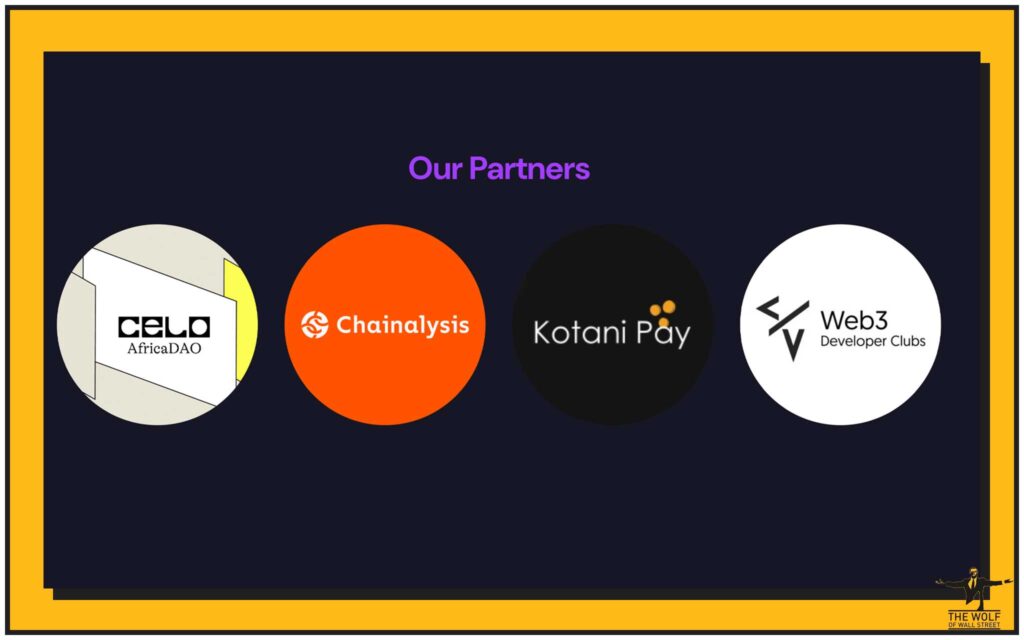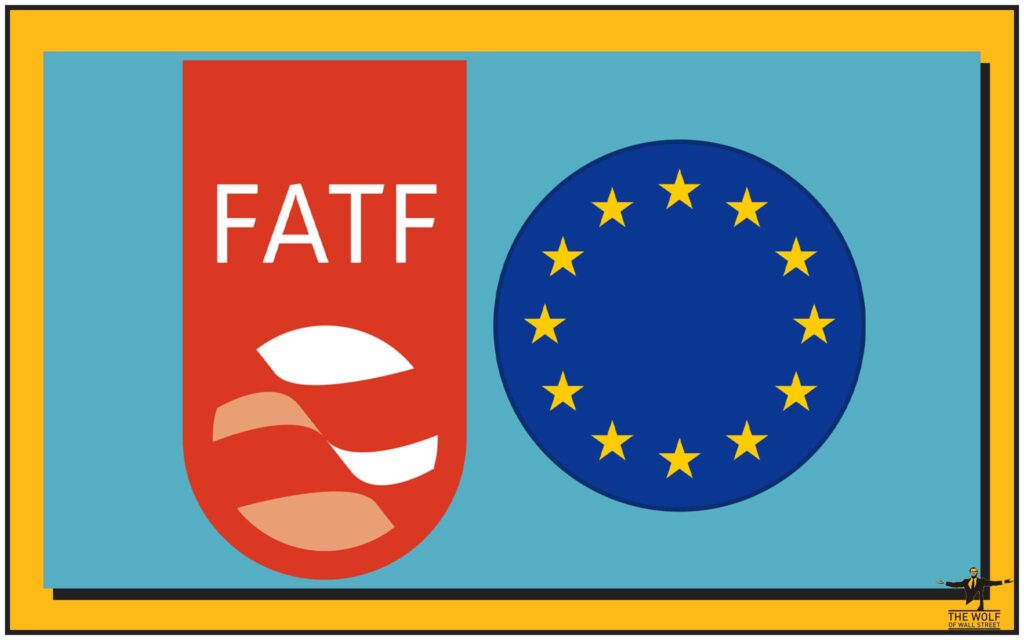🔑 Introduction: Kenya’s Crypto Crossroads – The Real Stakes
Kenya’s crypto regulation landscape isn’t just heating up—it’s about to explode. The new Virtual Asset Service Providers (VASP) Bill is on the table, and every trader, startup, and investor in the country should be paying attention. This isn’t just another piece of bureaucracy. It’s a full-on power play that could decide who rises, who falls, and who pockets the lion’s share of Kenya’s digital asset boom.

Let’s make one thing clear from the jump: Kenya’s crypto regulation isn’t just about “protecting consumers” or ticking boxes for international watchdogs. It’s about control, money, and who holds the keys to the future of finance in East Africa. If you’re still sitting on the sidelines, now’s the time to get your head in the game.
🏛️ The VASP Bill Unleashed
So, what’s the Virtual Asset Service Providers Bill, and why should you care? Simple: it’s the government’s bold attempt to corral Kenya’s wild-west crypto market into something resembling order. On paper, the VASP Bill aims to regulate crypto exchanges, wallet providers, and anyone else dealing in digital assets.

It promises:
- Licensing and oversight (no more fly-by-night operators).
- Strict compliance with anti-money laundering (AML) and consumer protection laws.
- A shot at making Kenya a credible player on the international stage.
Sounds good, right? Regulation brings legitimacy. But, as with every game-changing law, there’s always a catch—and this one is big.
🕵️ Who’s Pulling the Strings? The VAC and Binance Factor
Here’s where the story gets juicy. Buried in the fine print is the inclusion of the Virtual Asset Chamber of Commerce (VAC)—a so-called private think tank that, in reality, is closely linked to crypto giant Binance.
Let’s talk money and influence. Disclosures reveal Binance pays the VAC a cool \$6,000 per country, per month for policy advocacy. That’s not loose change. It’s an all-access backstage pass to the regulatory process. Now, critics are sounding alarms. If VAC gets a seat at the table—thanks to their Binance bankroll—who do you think the rules will really favour?
This is the point in the movie where the Wolf lights a cigar, grins, and tells you: “Don’t kid yourself. The house always wins—unless you know how the game is rigged.”
Craving deeper market insight and rapid-fire updates? The crypto news and cryptocurrencies hub are loaded with everything you need to stay ahead.
🚦 Regulatory Capture or Level Playing Field?
Let’s not sugarcoat it: regulatory capture is when those meant to be regulated get a stranglehold over the rules themselves. That’s the risk Kenya faces. If Binance—by way of the VAC—can influence, delay, or twist the rules to fit its global playbook, what hope do local startups have?
Stakeholders warn that this could not only tilt the playing field but drive out homegrown innovation altogether. Is this just paranoia? Not at all. Look at other markets where giants squeezed out competition and set the terms. If you’re a Kenyan startup, the message is clear: adapt, fight, or risk extinction.
But here’s where it gets interesting: Kenya isn’t the first country to face this power struggle. Similar scenarios have played out from Rwanda to Pakistan. And globally, regulatory capture is a real, present threat that destroys markets and kills competition if left unchecked.
Want to see how the rest of the crypto world is evolving? Deep-dive into altcoins or get actionable trading insights.
🔍 Inside the VASP Bill: What’s Changing for Kenyan Startups
Let’s cut through the noise and get tactical:
Who can get licensed?
- Only registered corporate entities. No individuals allowed to offer virtual asset services.
- Full KYC/AML compliance required—no exceptions.
- Heavy documentation and financial proof demanded.
What’s at stake?
- If you’re not licensed, you’re shut out—period.
- Heavy fines and penalties for those caught operating in the shadows.
- Startups need to pony up for legal, compliance, and reporting costs, potentially locking out the little guys.
How does this impact the scene?
- The big players—those with deep pockets and global ties—can jump through the hoops with ease.
- Startups, side hustlers, and innovators? Unless you can scale fast or partner up, you’re at a severe disadvantage.
🦈 The International Watchdogs – FATF and EU Greylist

Here’s the real kicker: Kenya’s move isn’t just about local politics—it’s about staying off the Financial Action Task Force (FATF) and EU grey lists. These are the big leagues. Get grey-listed, and your banks, your fintechs, your whole economy suffers.
Regulatory capture, even the whiff of it, sends red flags internationally. If watchdogs see a major player like Binance calling the shots behind the scenes, Kenya risks reputational damage and tighter restrictions from foreign partners.
🌍 Binance’s Global Playbook: Kenya Is Just One Chapter
Don’t think Kenya is special. Binance has a global playbook, and it’s slick. Kyrgyzstan? Advisory roles. Pakistan? Policy partnerships. The message: “Let us help you write the rules, and everyone wins.” But does everyone win? Or just the whales?

Binance is not the villain—let’s be real. They’re playing the game as it’s meant to be played: big, bold, and everywhere. But if you’re a local operator, you need to know exactly what kind of game you’re sitting down to.
🔄 What Do the Critics and Defenders Say?
Critics:
- Local startups say the VAC is anything but independent.
- There’s concern that, with Binance’s sponsorship, the VAC will rubber-stamp anything that keeps their benefactor ahead.
Defenders:
- The VAC’s director points to two years of consultations with the IMF, Central Bank of Kenya, and Parliament.
- Government officials insist the regulatory board includes representatives from the National Treasury, CBK, Capital Markets Authority, a lawyer, and an accountant—so it’s not a closed shop.
Both sides are screaming for your attention. Who’s right? That depends on your seat at the table and how the chips fall.
🛡️ Safeguards in the Bill: Are They Enough?
What’s actually in the bill to stop regulatory capture?
- Board diversity: not just the VAC, but multiple public bodies represented.
- Checks and balances: public consultation and transparency (on paper, at least).
- Licensing only to corporates—no cowboys allowed.

But let’s be blunt: paper safeguards don’t mean squat if the culture is weak and accountability is missing. Kenya must look at other countries—Singapore, Switzerland, the UK—where regulatory frameworks actually work. The common thread? Ruthless enforcement and crystal-clear separation between lobby groups and regulatory power.
🔒 Consumer Protection & Data Privacy Under Fire
It’s not all about the suits. Regular Kenyans need confidence that their funds and data are safe.
The VASP Bill:
- Requires robust consumer protection measures.
- Demands transparent reporting.
- Includes provisions for data privacy and cybersecurity.
But, if oversight is compromised, these protections risk becoming little more than window dressing. If you’re serious about your money, you want teeth in the law—not empty promises.
🏃♂️ Transition Period: Who Gets to Adapt?
Current operators aren’t thrown under the bus—yet. The bill includes a transition window for existing providers to register and get licensed. If you’re running a crypto business in Kenya, the clock is ticking. Miss your shot, and you’re out. Adapt fast, or get left behind.
💸 Winners, Losers, and the Real Future of Kenyan Crypto
Let’s be brutally honest:
- Winners: Big, well-funded players, especially those with international ties. If you’ve got compliance teams and lawyers on speed dial, you’ll love these rules.
- Losers: Small startups, independent traders, and the creative side of the Kenyan crypto scene—unless you can pivot, partner, or scale at warp speed.
But there’s a wild card.
Smart, connected communities have a shot. If you know where the tools, signals, and market insights are, you can still win, no matter how stacked the deck seems.
🚀 The Ultimate Play: Mastering the Kenyan Crypto Market

If you want to outmanoeuvre the whales and bureaucrats, you need more than passion. You need precision, intel, and a relentless edge.
- Stay plugged into every regulatory update and market shift.
- Arm yourself with cutting-edge tools and VIP signals.
- Network with the sharpest minds—don’t go it alone.
If you’re serious about levelling up, check out the best-in-class resources and strategies in our newbie and trending sections. Stay nimble, and never bet the farm on government promises—bet on your preparation.
💼 The Wolf Of Wall Street Community Spotlight: Your Secret Weapon for Crypto Mastery
Here’s your backstage pass: the The Wolf Of Wall Street crypto trading community is built for the bold, the ambitious, and the relentless. If you want more than just news, you need signals, tools, and an army of traders at your back.
Here’s what you get with The Wolf Of Wall Street:
- Exclusive VIP Signals: Proprietary intel designed to boost your profits.
- Expert Market Analysis: Get the sharpest reads from battle-tested traders.
- Private Community: 100,000+ traders, all hungry and sharing insights.
- Essential Tools: Volume calculators, risk controls, and real-time data.
- 24/7 Support: Never left in the dark—get help any time.
Empower your crypto journey:
- Visit our service page for all the details.
- Join our fire-breathing Telegram community for real-time trades and uncensored discussion.
- Get your edge. Don’t just play the game—win it.
⚙️ Conclusion: Don’t Wait for the Dust to Settle – Make Your Move Now
Here’s the bottom line: Kenya’s crypto regulation is changing fast. The VASP Bill could be the launchpad for a new era—or the guillotine for local innovation. Don’t wait until the regulators have written the last word. Position yourself now. Arm yourself with knowledge, tools, and community. That’s how the wolves play, and that’s how you win.
🏆 FAQs: The Hard Questions About Kenyan Crypto Regulation
Q: What’s the main risk with VAC and Binance’s involvement in Kenya’s VASP Bill?
A: Outsized influence could lead to regulatory capture—rules written to favour big players, not fair competition.
Q: Who can get a VASP licence in Kenya?
A: Only registered corporate entities meeting strict compliance, KYC, and documentation requirements.
Q: What penalties exist for non-compliance?
A: Heavy fines, business shutdowns, and possible criminal prosecution.
Q: What’s the transition period for existing providers?
A: A set window (details in the bill) to get licensed, or exit the market.
Q: How can individuals or small teams stay ahead?
A: Leverage top-tier tools, insider signals, and connect with advanced trading communities like The Wolf Of Wall Street.
For deeper coverage, check out our sections on policies, DeFi, NFTs & gaming, and the hottest new trends in layer-1 and layer-2 solutions.
The Wolf Of Wall Street crypto trading community offers a comprehensive platform for navigating the volatile cryptocurrency market.
Here’s what you gain:
- Exclusive VIP Signals: Access proprietary signals designed to maximize trading profits.
- Expert Market Analysis: Benefit from in-depth analysis from seasoned crypto traders.
- Private Community: Join a network of over 100,000 like-minded individuals for shared insights and support.
- Essential Trading Tools: Utilize volume calculators and other resources to make informed decisions.
- 24/7 Support: Receive continuous assistance from our dedicated support team.
Empower your crypto trading journey:
- Visit our service: https://tthewolfofwallstreet.com/service for detailed information.
- Join our active Telegram community: https://t.me/tthewolfofwallstreet for real-time updates and discussions.
- Unlock your potential to profit in the crypto market with “The Wolf Of Wall Street”.
Ready to dominate the Kenyan crypto market? The clock’s ticking. Make your move.
Back to Crypto News | See the Latest Market Insights | Start Your Journey Here




